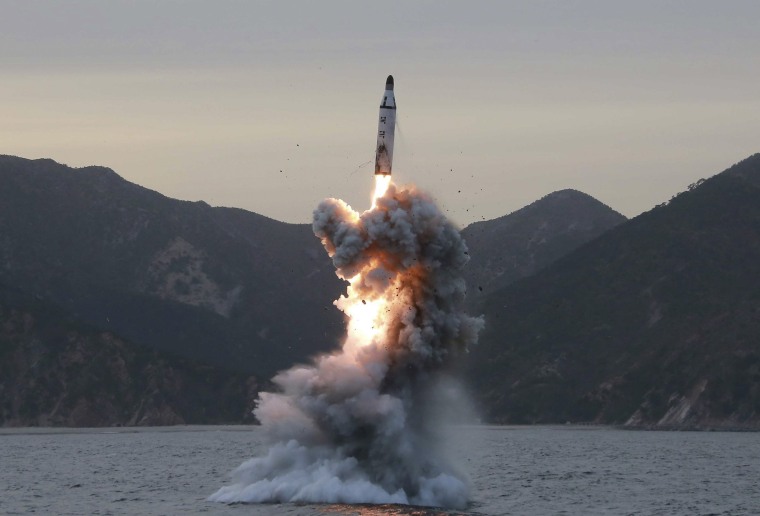LONDON — After years of North Korea thumbing its nose at the international community, on Friday Defense Secretary James Mattis appeared to signal enough was enough.
"Right now, [North Korea] appears to be going in a very reckless manner … and that has got to be stopped," Mattis said at a press conference in London.
He didn't give any details about how the administration of President Donald Trump plans to deal with the reclusive nation, which, under Kim Jong Un, has drastically increased its missile and nuclear-testing program.
But Mattis' remarks continue a recent trend of Trump officials taking a harder line on North Korea.
Earlier this month, Secretary of State Rex Tillerson said that the "diplomatic … efforts of the past 20 years to bring North Korea to a point of de-nuclearization have failed."
He also said that military action was "on the table."
Many experts say that Trump's options are limited, however.
Kim has pledged to develop weapons capable of striking the U.S. and its allies. Three of the country's nuclear tests were completed under his rule and he conducted more missile tests over the past four years than in the rest of the country's history.
Trump could try to levy more sanctions on the country, although these have not stopped previous tests and Tillerson appeared to dismiss this approach earlier this month.
But a full-scale invasion would be unlikely — not to mention extremely difficult — according to U.S. Army strategist Maj. ML Cavanaugh.
Cavanaugh wrote an article in the Modern War Institute at West Point, which is a research center of the United States Military Academy, warning of North Korea's tough, "Afghanistan-like geography" and an army that could act like "a much better-trained, much better-armed version of the Taliban."
An American invasion would also carry the risk of a retaliatory missile strike against America's allies, South Korea and Japan. The South Korean capital of Seoul, with its population of 10 million, is just 50 miles from its border with the North.


